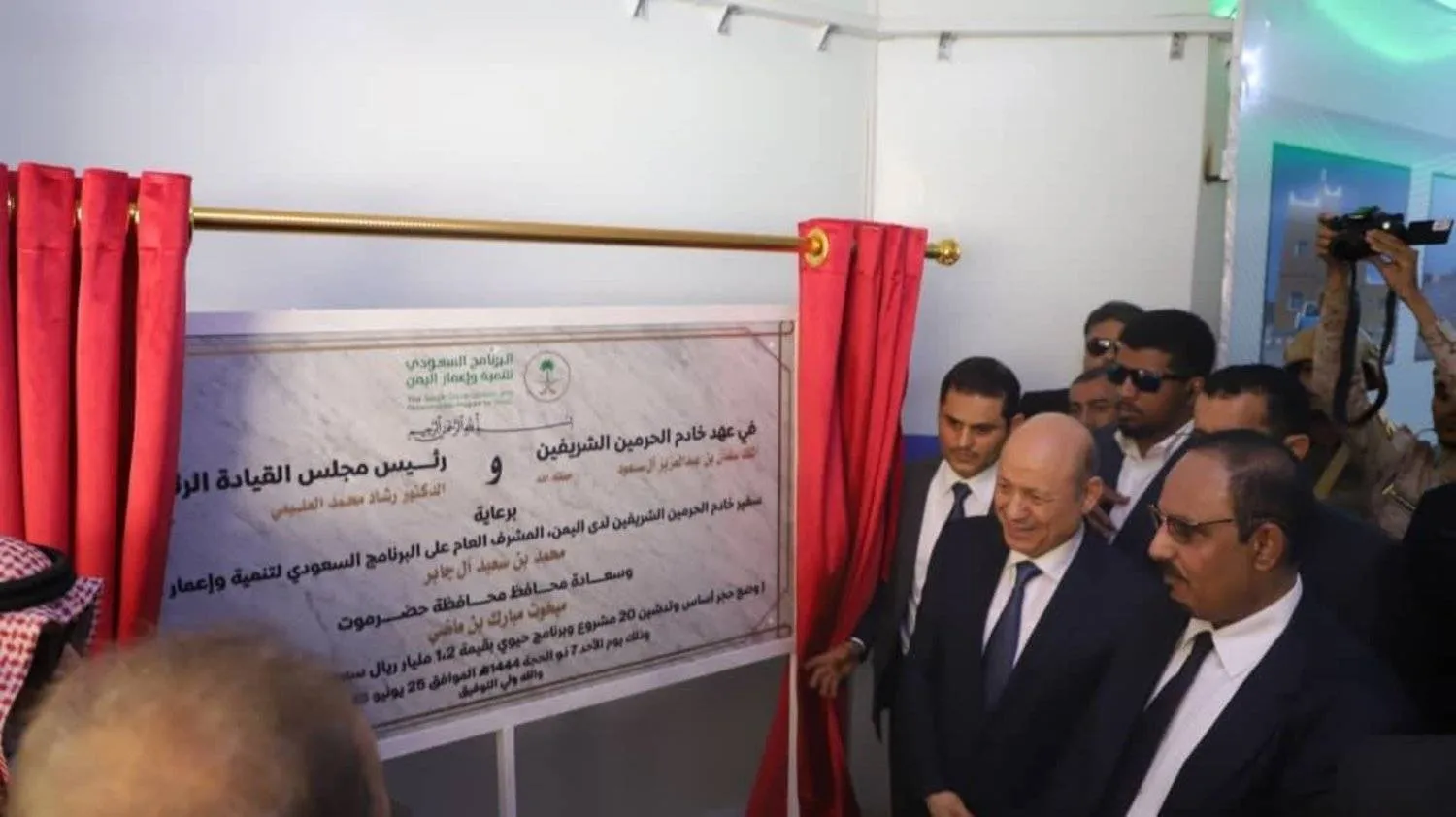Yemeni officials are working on drafting a roadmap that grants local authorities in provinces greater powers and independence from the central government after the nearly eight-year war severely weakened public institutions.
The project will be implemented in the interim capital Aden, Hadhramaut, and Taiz in an initial test phase before applying it to the remaining provinces.
Eng. Badr Baslama, the head of the Technical Committee for the “Empowerment of Local Authorities” project, told Asharq Al-Awsat that capacity-building would take place all provinces.
However, the initial focus will be on Aden, Hadhramaut, and Taiz to derive lessons and refine aspects of the project so that they may serve as a model for other regions.
The new project, supported by the Yemeni presidency, and with regional and international backing, aims to empower local authorities in provinces to achieve sustainable economic development involving communities and the private sector.
During the war, Iran-backed Houthi militias have managed to forcibly seize institutions in the capital, Sanaa.
During a visit to Hadhramaut in late June, Chairman of the Presidential Leadership Council (PLC) Dr. Rashad al-Alimi stressed the commitment to enhance the role of local authorities in all liberated provinces to consolidate security and stability and improve services.
Baslama explained that after the implementation of the project, provinces will be able to offer services in collaboration with the private sector. They will have the necessary funding to carry out projects to redefine the concept and role of the state that will regulate operations and set market and economic standards.
Baslama lamented that the war had led to the complete disintegration and weakness of state institutions, rendering them incapable of providing services. Local authorities found themselves unprepared for this situation.
“Previously, 97% of projects came from central authorities, with local authorities overseeing implementation. However, due to the war, local authorities now bear full responsibility for services and tasks they were neither prepared nor equipped for,” he said.
He further emphasized local authorities’ efforts to find solutions, provide minimal development and services, and sometimes even surpass their legal powers.
“Provinces exceeded their legally granted powers due to the war. Additionally, unallocated funds caused significant disorder and rampant corruption at local levels,” he noted.
The new “Empowerment of Local Authorities” project focuses on delivering services, local development, and job opportunities for sustainable stability, affirmed Baslama.
“This project addresses the most significant concerns at the provincial level, which are services, local development, and job creation,” he said.
“The direction from the Presidential Leadership Council is to create a project empowering local authorities to provide services and promote local development for job opportunities,” he added.
Under the roadmap, local authorities will gain more powers.
“Resource allocation is also an issue,” he noted, adding that “this will be resolved through phased implementation in the roadmap, gradually granting powers and resources, capacity building, according to a timeline.”
Baslama noted a misconception about resources.
“Some believe resources are limited to oil and gas, but there is more,” he explained.
“Looking at the fishing sector, many provinces, especially in the south, have coastlines (...) We need to explore other resources.”
“Before independence, Abayan long-staple cotton was sold at the London Stock Exchange as one of the world's finest. Why not revive it? We must revitalize economic sectors,” asserted Baslama.
Baslama believes that one of the prominent challenges facing the project is the reluctance of central government institutions to relinquish their granted authorities. Letting go of these powers to local authorities poses a significant issue.









